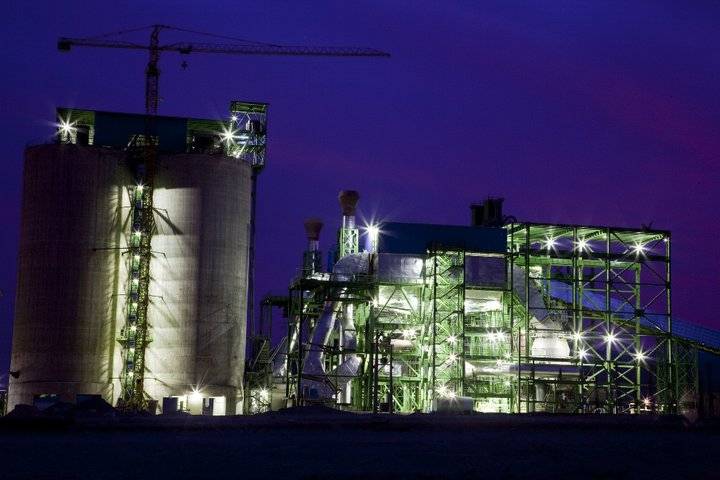
Although State Bank Governor Reza Baqir yesterday (Thursday) said economy was moving in right direction, the effects of devaluation, inflation, rising prices of utilities, stock market slump and higher cost of doing business are visible to everyone in Pakistan, showing that everything is going south.
And the latest report by Faseeh Mangi for Bloomberg is a proof, which says Power Cement Ltd has suspended almost a third of its output as demand and prices fall amid an economic downturn and higher costs bite.
This report shows that the tall claims of constructing 10 million houses couldn’t boost the sector.
The second largest producer in the country’s south has shut about 3,150 tons per day of old, high-cost production capacity after market conditions rendered them unviable. Newer lines accounting for 7,700 tons remain operational, the report said.
Meanwhile, Baqir made the claim about moving in right direction despite admitting that the economy is weak, unemployment is rising and inflation is moving upwards – making his assertion look a political statement although he isn’t a politician.
Coming back to the Bloomberg report, the old units were closed because they are “inefficient lines,” Chairman Nasim Beg said in a message. “The output of these is not competitive under the present conditions.”
Power Cement’s shares fell 13.6 per cent to the lowest in almost five years at 9:30 am local time. The cement manufacturer shares have plummeted 45 per cent this year, more than the 21 per cent loss for the benchmark KSE-100 Index. The stock now trades at 3.2 times its projected earnings in the next 12 months, compared with the country’s average of 4.9.
Production costs across the industry are rising because of higher utility prices and taxes, according to Raza Jafri, the director of research at Intermarket Securities Ltd in Karachi.
“Demand is slowing down and new capacities are coming up,” he said. “There will pressure on prices going forward.”
The Bloomberg report noted that dwindling demand and rising costs are a dramatic change for the industry that was operating at maximum capacity over the past few years. Virtually all cement producers expanded to increase Pakistan’s total output by almost half to 70 million tons during that time.
Now, with an economic slowdown taking hold, those calculations are going wrong. Pakistan’s gross domestic product is projected to slow down to 3.2 per cent this year, while inflation is forecast to rise to double digits. Cement sales dropped 6 per cent to 5.4 million tons in nine months ended March.
And the latest report by Faseeh Mangi for Bloomberg is a proof, which says Power Cement Ltd has suspended almost a third of its output as demand and prices fall amid an economic downturn and higher costs bite.
This report shows that the tall claims of constructing 10 million houses couldn’t boost the sector.
The second largest producer in the country’s south has shut about 3,150 tons per day of old, high-cost production capacity after market conditions rendered them unviable. Newer lines accounting for 7,700 tons remain operational, the report said.
Meanwhile, Baqir made the claim about moving in right direction despite admitting that the economy is weak, unemployment is rising and inflation is moving upwards – making his assertion look a political statement although he isn’t a politician.
Coming back to the Bloomberg report, the old units were closed because they are “inefficient lines,” Chairman Nasim Beg said in a message. “The output of these is not competitive under the present conditions.”
Power Cement’s shares fell 13.6 per cent to the lowest in almost five years at 9:30 am local time. The cement manufacturer shares have plummeted 45 per cent this year, more than the 21 per cent loss for the benchmark KSE-100 Index. The stock now trades at 3.2 times its projected earnings in the next 12 months, compared with the country’s average of 4.9.
Production costs across the industry are rising because of higher utility prices and taxes, according to Raza Jafri, the director of research at Intermarket Securities Ltd in Karachi.
“Demand is slowing down and new capacities are coming up,” he said. “There will pressure on prices going forward.”
The Bloomberg report noted that dwindling demand and rising costs are a dramatic change for the industry that was operating at maximum capacity over the past few years. Virtually all cement producers expanded to increase Pakistan’s total output by almost half to 70 million tons during that time.
Now, with an economic slowdown taking hold, those calculations are going wrong. Pakistan’s gross domestic product is projected to slow down to 3.2 per cent this year, while inflation is forecast to rise to double digits. Cement sales dropped 6 per cent to 5.4 million tons in nine months ended March.
